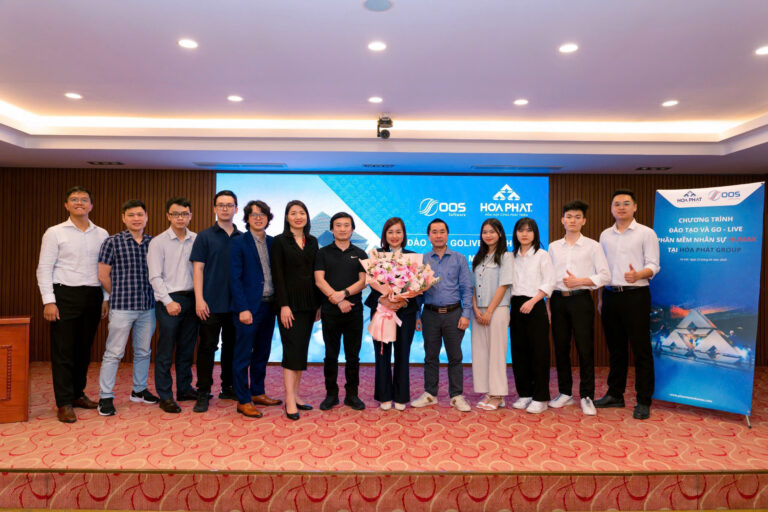-
BE A BETTER BOOKER:
A relationship with a direct manager is important for engagement: Research by Dale Carnegie Training shows: “49% employees who are satisfied with their direct manager are engaged. ”
-
BE A Credible Leader:
Trust in senior management is an essential factor in team cohesion. Research by Dale Carnegie Training shows that: “61% employees who believe in their leadership ability and think that senior leaders are leading the organization in the right direction are fully engaged. ”
-
EMPOWER YOUR EMPLOYEES!
Research by Dale Carnegie Training shows: “61% engaged employees are those who are satisfied with the suggestion that they contribute to decisions that affect work.”
-
LEARN FROM PAST CONNECTED PROS:
Charles Schwab on Employee Engagement: “I consider my ability to ignite enthusiasm in my employees […] as my greatest asset.”
-
FOLLOW DALE CARNEGIE'S GOLDEN RULES:
Before you talk, stop and ask yourself, "How can I get the other person to want to do what I need him to do?"
-
BE A CAREER MANAGER:
Research by Dale Carnegie Training found that: “The relationship with the immediate supervisor has a large impact on employee performance. Employees want to feel that their direct supervisor cares about life outside of work and understand how that might affect their job performance. This concern can lead to increased productivity, customer satisfaction, and increased sales. ”
-
BUILD SUSTAINABLE AND TRUE RELATIONSHIP:
Dale Carnegie Training suggests: “Take an interest in your employees, learn what matters to them, and determine how that affects their performance.”
-
INTERESTED, FINDING EMPLOYEES:
Research by Dale Carnegie Training shows: “Employees are more engaged if they feel their direct manager is interested in life outside of work and understand how that affects their performance.
-
PROMOTE COMMUNICATION BETWEEN PEOPLE:
Research by Dale Carnegie Training shows: “Creating a positive work environment and showing employees that they are valued encourages team cohesion.”
-
EXCHANGE OF EMPLOYEES ABOUT THE ORGANIZATION'S STATUS AND OBJECTIVES:
Research by Dale Carnegie Training shows that: “when you show employees that they are respected by the organization and that their personal values and goals are reflected in the vision of the organization, they become more engaged. than."
-
BUILD PURPOSE IN THE ORGANIZATION:
Research by Dale Carnegie Training shows: “Engaged employees will recommend their company as a great place to work and will encourage others to partner with the organization.”
-
ATTENTION TO CUSTOMER SERVICE EMPLOYEES AND CONNECTION OF BUSINESS STAFF:
Research by Dale Carnegie Training found: “Employees who work directly with customers tend to be less engaged.”
-
PUT MORE EFFORT IN CONNECTING MIDDLE EMPLOYEES WORKING FOR THE ORGANIZATION FOR MORE THAN 5 YEARS:
Research by Dale Carnegie Training reveals that employees aged 40-49 often become less engaged when they face family pressure. Research by Dale Carnegie Training shows that “managers who understand the problems and personal lives of their employees can limit this lack of engagement.”
-
PUT MORE EFFORT IN CONNECTING ALL EMPLOYEES WORKING FOR THE ORGANIZATION FOR MORE THAN 5 YEARS:
Research by Dale Carnegie Training shows that “engagement increases during the first five years of employment, then tends to decrease slightly and stagnate. “Managers need to maintain training, because this will help improve the level of “engagement saturation” after 3-5 years of working.
-
BUILD A POSITIVE WORKING ENVIRONMENT:
“Positive emotions and friendly communication between team members create cohesion.”
-
BUILD PURPOSE IN THE COMPANY:
Research by Dale Carnegie Training shows: “Pride in the company and a positive working environment energize employees; They want to work and are willing to put in the effort to bring success to the organization.”
-
LOOKING FOR EVERY MEMBER'S CONTRIBUTION:
“Praise the smallest improvements and celebrate each one.” – Dale Carnegie
-
FOLLOW DALE CARNEGIE'S LEADERSHIP PRINCIPLES:
"Honestly praise and appreciate others" - Dale Carnegie
-
EXAMPLE LEADERSHIP:
Research by Dale Carnegie Training shows: “Creating a positive work environment and showing employees that they are valued encourages team cohesion.”
-
PROVIDE NECESSARY SUPPORT TO EMPLOYEES:
“For better employee engagement, communicate openly, provide necessary support, lead by example, and provide timely feedback.”
-
RESPECTING THE EMPLOYEE'S EMPLOYEE - LIFE BALANCE NEEDS:
Research by Dale Carnegie Training found that when employees feel that their managers support their health, well-being, and happiness, they are more engaged in their work. They are willing to put extra effort into the company when they know their personal health is taken care of.”
-
BUILD TRUST AS A MANAGER:
“Employees who trust and feel respected by their managers feel confident to speak freely without fear of consequences.” Research by Dale Carnegie Training
-
FIND OUT THE PERSONAL LIFE OF EMPLOYEES:
The Dale Carnegie training study found that: “66% employees believe that managers are not interested in their personal lives.”
-
TRADE EMPLOYEES AS A "VALUE PERSON" OF SKILLS, BETTER THAN THE "VALUED SKILLS" TYPE:
Research by Dale Carnegie Training shows that a manager's "ability to build lasting relationships with employees, build a culture of strong team interaction, and lead in a "people-focused" manner will creating a cohesive environment in which employees can work at their highest possible productivity.”
-
CONTINUOUSLY INSPIRATION AND INSPIRATION OF LOW-PAYED EMPLOYEES:
Research by Dale Carnegie Training found: “45% managers and supervisors are engaged; only 23% employees at other levels are engaged. More engaged employees tend to work in large companies, are members of senior management, have college degrees, and earn more than fifty thousand dollars annually.”
-
PROMOTE EMOTION IN WORK AND YOU WILL BUILD TRUST IN EMPLOYEES, MAKING THEM READY TO WORK FOR THE COMPANY MORE:
According to a survey by Scarlett, “Team engagement is a measure of positive or negative emotions towards work, management, co-workers, and the organization that affect learning and performance. employee work at the company.”
-
CREATE MORE POSITIVE EMOTIONS AT WORK:
Research by Dale Carnegie Training found: “Positive emotions induce a strong sense of satisfaction in employees. They increase a person's energy and performance and enable him/her to help others (colleagues) complete tasks.”
-
“WHEN WORKING WITH HUMANS, REMEMBER THEY IS NOT A MACHINE, BUT A ENTITY WITH EMOTIONS.”
-
CREATE AUSTRALITY:
Research by Dale Carnegie Training found that “employees who are emotionally connected to an organization often feel they have a sense of autonomy, and are more likely to stick with the company, allowing them to do better work within the organization. less time and reduced employee turnover costs.”
-
CREATE A FEEL OF esteem. HELP EMPLOYEES FEEL VALUE TO THE TEAM AND TO THE COMPANY:
Research by Dale Carnegie Training shows that “60% employees who feel they have an influence on the direction of the company are engaged.”

-
BUILD CONFIDENCE IN YOUR EMPLOYEES; APPRECIATE THE MOST IMPROVEMENTS:
“Praise so that others will always strive to be worthy of that praise.” - Dale Carnegie
-
ENVIRONMENT IS THE KEY KEY, LETS ENJOY YOUR JOB:
“When employees feel enthusiastic about their work, they strive harder, are more willing, and even begin to think “out of their comfort zone” to complete a job or task.” – Research by Dale Carnegie Training
-
EMPOWER YOUR EMPLOYEES:
DCT found that “65% employees who said they were satisfied with the amount of input they contributed to decisions affecting their work were engaged.”
-
EMPLOYEE EMPLOYEES! PROMOTE JOY AT WORK:
Research by Dale Carnegie Training shows that “Showing employees how their efforts contribute to the success of the team and the organization makes them more engaged.”
-
MOTIVATION:
Research by Dale Carnegie Training found: “Employees need to feel that what they do is meaningful and that they are working for a successful company.”
Research by Dale Carnegie Training shows that “team engagement should start with the hiring process. Engage new employees who need to develop productive skills. Communicate so they understand their roles and responsibilities.
-
FEEDBACK TO EMPLOYEES TO UNDERSTAND THEY ARE ON THE RIGHT DIRECTION:
Employees, especially new hires, want to build new skills and improve continuously like professionals. Most of the time, non-financial incentives are of particularly great importance for employee engagement.
-
RECOMMENDED EMPLOYEES TO PERFECT YOURSELF:
Research by Dale Carnegie Training shows that “53% fully engaged employees say they learn a lot from their supervisors.”
-
LISTEN TO EMPLOYEES:
Research by Dale Carnegie Training shows: “When an organization encourages open and honest communication, employees feel more engaged. They welcome the opportunity to share their concerns and concerns and work together to find solutions.”
-
TRAINING AND TRAINING:
Coach, train and give employees the opportunity to develop new skills. “Investing in internal or external training programs is another way to increase engagement.”
-
INSTRUCTIONS FOR EMPLOYEES, SPECIAL NEW EMPLOYEES.
-
CONNECTING EMPLOYEE VALUES AND COMPANY VALUES:
Research by Dale Carnegie Training found that: “employees need to feel that they belong to a community that shares their values. When employees see organizational activities that align with their values, they become more committed to that organization.”
-
DETERMINATE THE TALENTS OF ALL TEAM MEMBERS:
Identifying how team members can complement each other by completing different tasks creates teamwork and nurtures and encourages better teamwork.
-
FAITH FOR EMPLOYEES TO DEVELOP SKILLS AND DEVELOPMENT:
Dale Carnegie Training research shows that “the opportunity to grow, hone skills, and try new things provides engagement.”
-
BUILDING CONNECTED CULTURE:
Through positive attitudes and actions, senior leadership can build a culture of engagement and inspiration for all employees. Research by Dale Carnegie Training shows that “60% employees who have confidence in top management and think that senior leaders are leading the organization in the right direction are often fully engaged, while only one third of them think that senior leaders are leading the organization in the right direction. disagree with the above view.
-
BUILDING PLAN AND STRATEGY CONNECTING LANGUAGE:
Research by Dale Carnegie Training shows that “although 90% organizations say engagement affects business success, up to 75% companies do not develop a team engagement plan or strategy. This is very important for any organization, as engaged employees are an important factor in determining the business performance of the business.”
-
MEASUREMENT OF EMPLOYEE CONNECTION:
Managing employees effectively is an ongoing process. Top management needs to invest time and resources in measuring employee engagement. Surveys and face-to-face interviews are recommended methods. Employees need to be confident that they can express their opinions and feel certain that when they do, they are safe from the consequences.
-
RECOMMENDATION AND PREPARATION OF CONNECTED MEMBERS:
Rewarding employees and managers increases productivity and builds enthusiasm within the organization. Benefits and offers can be customized to appeal to other employees. Recognize and praise employees in addition to material incentives to improve engagement.
-
PROMOTE TEAM TEAM AND COOPERATION:
“Teamwork is the ability to work together towards a common vision, the ability to direct individuals to accomplish organizational goals. It is the fuel that allows ordinary people to achieve extraordinary results.”
-
PROMOTE LONG-TERM CONNECTION:
Research by Dale Carnegie Training shows: “Long-term engagement begins with good communication between leaders and employees, as well as between employees and employees, fostering a positive work environment."
-
“You have to capture the heart of a talented employee before his brain can do its best. "
Source: Dale Carnegie























